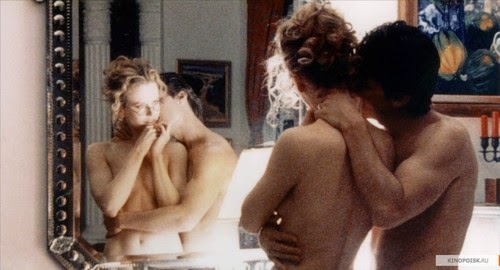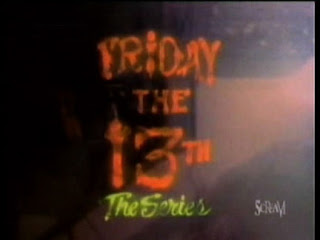Kubrick Reflection: Eyes Wide Shut
I have thoroughly enjoyed watching the Kubrick movies over the last few weeks. I have noticed one continuing theme however in my inability to easily come up with something to write about in these reflection papers. I was fascinated with early film and Hitch is a more natural fit to my interests, but I have to admit that I found the Kubrick movies infinitely more fascinating. Eyes Wide Shut does seem to be a culmination of Kubrick’s earlier efforts making it a very worthy movie to end his career.
In this movie, Kubrick’s ideas are so in your face that you cannot possibly miss them—everything from his juxtaposition of love and making love with mindless sex, the idea of losing something, essence or life, with sex, class differences, mirroring and mirrors.
Webster’s views (Love and Death in Kubrick: A Critical Study of the Films from Lolita through Eyes Wide Shut by Patrick Webster) are a wonderful addition to each of the movies we have read, although I have found them increasingly tiresome. That would be because in the beginning he had less to say on the films, but as Kubrick’s career blossomed his need to incorporate more and more meaning also seemed to increase. Webster’s discussion on Eyes Wide Shut was considerably longer than the early readings making it a bit cumbersome to get in (also when you add in the ever increasing Appendix information) in a week when we also needed to be thinking about our take on the essay.
Webster discusses a little bit about how Kubrick’s interest over the book Dream Story began in the 70s and how there was no real answer as to why it took 20 years to get this project going. In my opinion, I feel that Kubrick could have been waiting for the right couple to play Bill and Alice. One of the things that jumped out for me in this movie was that Kubrick seemed to be talking about the differences between lovemaking and sex. He had been criticized before over how he seemed to want to be a porn director but didn’t have a knack for it. To me, this showed my point watching A Clockwork Orange—Kubrick had no intention to direct porn. In fact, what he was showing was the lack of feeling, the lack of care, the banality of sex in a sense. He whelms the senses to desensitize us—to show us that it isn’t anything at all.
Here, the most erotic scene is Alice and Bill’s mirror foreplay. We aren’t really watching it, but watching the reflection of it—we are being allowed to watch something intimate between two people who love each other. I feel that Kubrick waited for the right couple because he wanted to drive home that difference. Alice and Bill’s mirror scene, lovemaking, versus the cold gratuitous nature of the sex orgy—faceless people not sharing anything but space. A lot of people mistake physical closeness for intimacy. They are not the same. Intimacy doesn’t have to be sex, and in the scene with Alice and Bill we are taken away from it before it gets to that point. Another time we can see it is in the party scene itself. Bill is with those two models and Alice is with that rich older gentleman, but when Alice sees Bill, the older gentleman realizes immediately that they know each other. The fact that we see Alice in the beginning naked shows that she can be objectified and is objectified by that older gentleman at the party. She isn’t only “Bill’s loving wife”. Bill’s realization of this fact seems to be the real drive behind the events of the movie. When she tells him about fantasizing over the military officer in Cape Cod, he is shaken.
To me, this is why Kubrick found having a married couple play the married couple so important. He needed them to bring intimacy to the table that was REAL. He didn’t want an act, he didn’t want two great actors that could fake great intimacy he wanted realism. He wanted Tom and Nicole to bring something to the table that could not be faked or acted.
Webster also discusses a lot about seeing and/or the lack of sight, starting with the title. Alice asks Bill in the beginning about her hair, and he says it looks great—to which Alice replies that he isn’t even looking at it. If he saw it at all, it was in the mirror, which seems to be the way that he has been looking at Alice. Looking at something in a mirror is an indirect way of looking at it, and our vision is impaired by that. Webster talks about the idea of looking without seeing, and we see that Bill has been doing that with Alice. As far as marriage, or any relationship, goes, we get to a point where we take things for granted. Bill isn’t jealous at all of the attention Alice receives from the wealthy gentleman at the party and Alice is upset by this. Does Bill think she couldn’t get another man? Does Bill not find her desirable? Alice’s shaking of Bill into reality the that fantasy propels the events of the movie. Thinking about her with this other man obsessively possesses his thoughts. He cannot unsee what he has seen in his head. In this, the fantasy has become greater than the reality and Bill tries to find something physical to get himself out of his head. Throughout the over two and a half hours, Kubrick constantly makes us wonder what is more dangerous? The fantasy or the reality? Are they equally dangerous?
I’m pretty sure I could go on for a few more hours on this but I do need to write my paper on Kubrick’s works, so I will get going with that. I will just put it here that Eyes Wide Shut is probably one of the best movies I have seen in quite a while.


Comments
Post a Comment